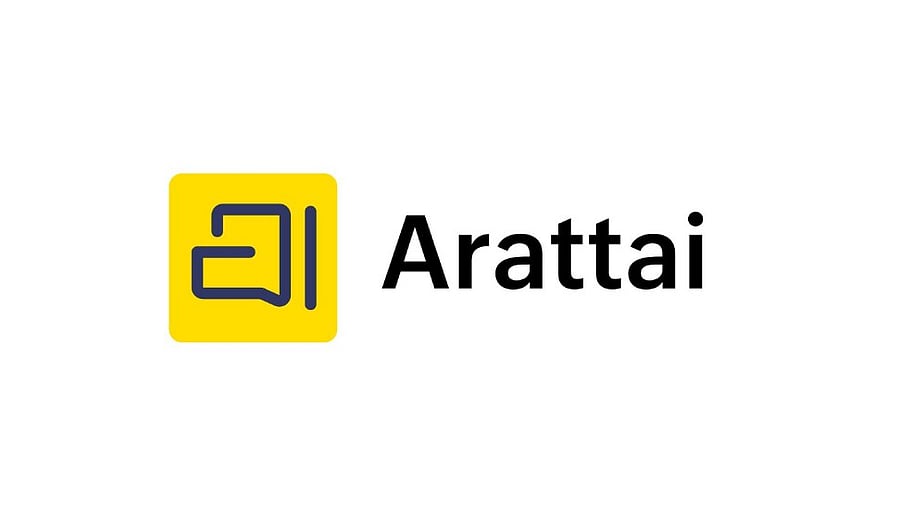
Arattai Messenger app.
Credit: Dharmendra Pradhan, Union Minister of Education/ X platform
Arattai, the homegrown Indian messaging app, has been trying to carve out space in a world where WhatsApp is almost synonymous with online communication. The challenge it faces is not about technology or design alone. It is about coordination. In markets like social networking, success depends less on having a better product and more on whether people believe everyone else will use it.
The logic is simple. Messaging apps are only valuable if the people you want to talk to are there. If I believe my family, friends, and business contacts will move to Arattai, then I should move too. If I believe they will all stay on WhatsApp, there is no point in shifting. This creates two stable outcomes. In one, everyone sticks to WhatsApp. In the other, everyone moves to Arattai. Both are possible, but only one will survive. The formula that guides behaviour is “do what you think others are doing.” In game theory, this is called a coordination game, where both choices can be rational but only one will prevail, depending on what people expect others to do.
This is why incumbents dominate social media. Once a platform becomes the default, it is hard to dislodge. That is why Facebook owns social networking, LinkedIn owns professional networking, Instagram owns photo sharing, and YouTube owns video.
Downloading a new app only takes seconds. But switching together is the real problem. Unless whole networks move at once, the lone user gains nothing. This is the coordination trap at the heart of Arattai’s struggle.
History shows that there are usually two ways the lock-in breaks. The first is through viral energy. Sometimes a new platform becomes popular because it feels new and exciting – think TikTok. The second is through fear or regulation. When WhatsApp announced changes to its privacy policy in 2021, many people experimented with Signal and Telegram. That moment of uncertainty gave alternatives a sudden boost. Both paths show that it takes more than good design to spark mass migration.
Can Arattai find such a spark? On the plus side, its strongest card is its Indian identity. At a time when digital self-reliance is a national theme, this matters. There is also a real trust deficit with foreign tech giants, whether over data privacy, monopoly power, or regulatory disputes. Arattai can position itself as safer, more compliant, and more aligned with Indian interests. If institutions like schools, government offices, or large businesses adopt it formally, they could anchor a base of users and make others follow.
It takes more than quality
But the obstacles are steep. WhatsApp is deeply embedded in Indian life. It is used for family chats, neighbourhood stores, weddings, politics, and everything in between. Even if Arattai is free, secure, and user-friendly, it looks more like a replica than a reinvention. Unless it can offer something truly different that WhatsApp does not, the question for most users will remain, why shift at all?
This highlights a deeper truth. We like to think better products always win. In network-driven markets, that is often false. Betamax was technically superior to VHS, but lost because rental stores and film studios rallied around VHS. Google Plus had features Facebook never offered, but users never moved together, so it withered. Blackberry had secure, reliable phones, but lost once people believed everyone else was buying iPhones. That is the nature of coordination games.
The same applies here. For policymakers, the lesson is that competition in digital markets cannot be left to product quality alone. If we want to give new players a fair chance, we may need regulatory nudges, such as requiring interoperability or easing data transfer. For entrepreneurs, the message is clear. Building a superior app is only the first step. The harder step is to convince enough people to believe, at the same time, that others will come too.
So, will Arattai succeed? It will succeed only if it finds the right trigger. That could be a viral wave of adoption or a shock that weakens WhatsApp. Without such a trigger, Arattai may end up as another entry in the long list of challengers who could not solve the coordination problem.
The coordination game favours the incumbent until expectations shift. And expectations, once formed, are stubborn. If people think others will move, they will move too. If not, however promising the app may be, WhatsApp will remain the default. Arattai is not just fighting an incumbent. It is fighting inertia, and inertia is the toughest competitor of all.
(The author is an assistant professor of Economics at IIM Kozhikode)
(Disclaimer: The views expressed above are the author's own. They do not necessarily reflect the views of DH.)